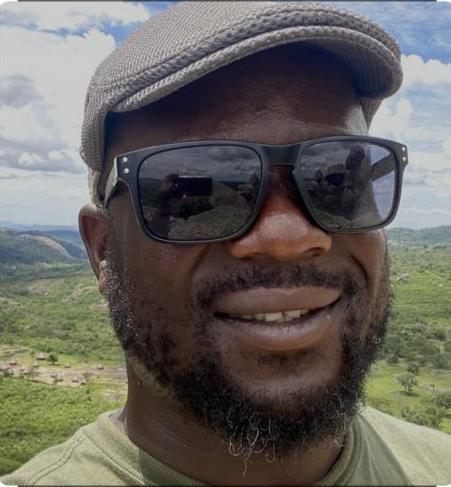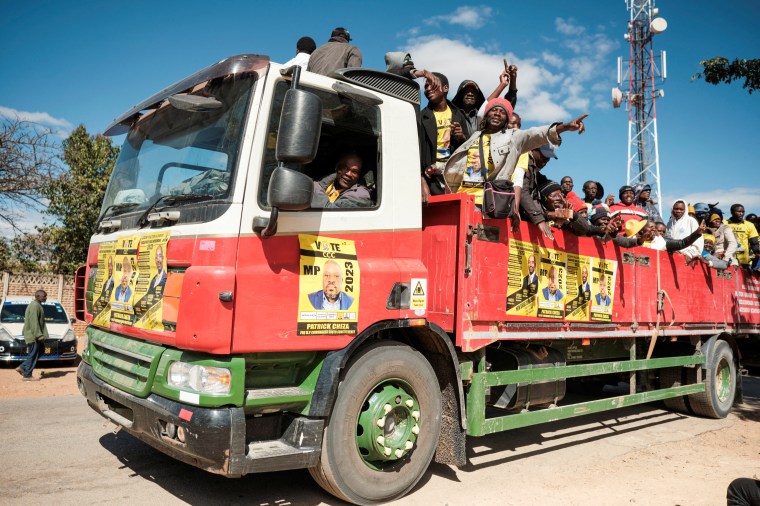Lusaka, August 2, 2023—Zimbabwean authorities should immediately drop illegal drone-flying charges against reporter Columbus Mavhunga and ensure that journalists can freely carry out their work without fear of reprisal, the Committee to Protect Journalists said Wednesday.
On July 23, police arrested Mavhunga, a correspondent for the U.S. Congress-funded broadcaster Voice of America (VOA), after a drone he was using to report a story about abandoned government road projects crashed into the Iqra Islamic Centre in the capital, Harare, according to news reports, the journalist and his lawyer, Godwin Giya, both of whom spoke to CPJ.

Mavhunga was charged on two counts of illegally flying a drone without a license, and for flying it within 30 meters (about 33 yards) of a building in contravention of sections 42(a) and 43(a) and (b) of the Civil Aviation (Remotely Piloted Aircraft) Regulations of 2018, according to Giya and the charge sheet reviewed by CPJ.
“Zimbabwean police must immediately drop the charges against Voice of America correspondent Columbus Mavhunga and allow journalists to operate freely ahead of the August 23 general election,” said Angela Quintal, CPJ’s Africa program coordinator, in Durban, South Africa. “To charge Mavhunga when he had a license to operate the drone and the wind blew it off course suggests that there is a hidden agenda to censor the media rather than a genuine attempt to uphold the law.”
Mavhunga, who faces imprisonment of up to two years and/or a fine of up to US$5,000 if convicted, told CPJ that he lost control of the drone due to bad weather.
“It was a windy day so instead of coming back to me, the drone went the other way and crashed,” he said, adding that when he tried to collect the drone, a furious staff member at the center laid a charge with the police, who arrested him on the premises.
“It is not true that I don’t have a license. I have it… (it) expires in April 2025,” Mavhunga said. “We are being stopped from reporting what we know ahead of August (elections).”
Mavhunga regularly reports on politics for VOA, with his recent coverage highlighting Zimbabwe’s ailing economy, previous election-related violence by the state and a crackdown on the opposition ahead of the national elections.
The journalist’s lawyer Giya told CPJ that the second charge of operating a drone within 30 meters of a building was not valid as it only applied if the operator did not have a license.
Mavhunga and Giya said on August 1 that the police still had the drone and the footage, preventing the journalist from publishing the story about the collapse of government road projects due to funding shortages.
Mavhunga was detained in police cells for three days before appearing in court on July 26, when he was released on US$50 bail, according to the journalist and news reports. He is due back in court for a hearing on August 28.
National police spokesperson Paul Nyathi declined to comment as the matter was in court.
Last month, CPJ condemned the passage of the so-called “Patriot Bill,” which threatens the rights to freedom of expression and media freedom in Zimbabwe. CPJ also called for an investigation into the assault of three reporters by people wearing regalia of the ruling Zimbabwe African National Union-Patriotic Front, or ZANU-PF, which has ruled the country since independence in 1980.
The elections – the second since the military ousted former President Robert Mugabe in 2017 – will take place as Zimbabweans battle one of the world’s highest inflation rates and concerns that the vote will not be free or fair.
